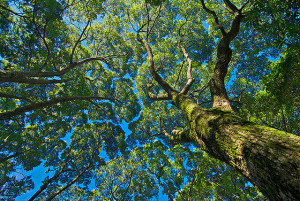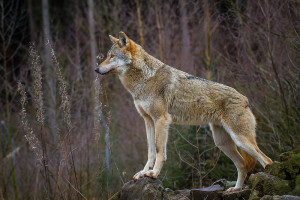In the modern society of today it has been taught that economic growth is the most important factor of the world’s welfare and development. Through the media it has been ingrained in our brains that an increased production of goods and services means the same thing as a positive development for the country, but is this really true.
An economic driven society works fine as long as it is fair and do not cause damage to people or the Earth. A problem is that the natural resources and ecosystem services that we use are in many cases, especially the ecosystem services, outside the financial market even though they are the most valuable resources we have.
Because of the fact that we humans seem to only be able to understand monetary value there is a great need, for our continued survival’s sake, to put a price on the environment. We need to start paying the real price for the use of all these gods and services that the nature is providing us with and through this reduce the consumption, otherwise the consequences will be devastating. This might be the only way for us to understand how great the value of these resources are.
The over consumption of the natures gods and services has serious consequences such as climate change, the spread of pollution and natural disasters. Although more and more people get aware of the importance of protecting the Earths ecosystem services, mostly due to the benefits that we humans directly and indirectly gain from the nature, is the consumption of the Earth’s natural resources increasing rather than decreasing. Drastic changes must be made, the repairing of our over consumption will cost us far more than we have earned from the over consumption of these resources and unfortunately many of the damages that we have caused are of such a serious kind that is no longer possible to repair them. The Earths human population can no longer continue to utilize the ecosystem services without paying a fair price for them.
It could possibly be done through putting a monetary value of the resources but the main cause is not to put a price on the environment, but to highlight the value of the environment. The invisible value of the Ecosystem services of today lead to ineffective environmental policies and not well grounded agreements. An environmental valuation can provide the basis for the development of important instruments to be used within the environmental field(Lundell 2013).
The Journal, Nature, published a new study these days that show how the human pressure has effected the biodiversity around the world since the 1500s. This study is a major study that has been done through a collaboration between The United Nations Environment Programme World Conservation Monitoring Centre (UNEP-WCMC), The Natural History Museum and some British Universities. From this study it can be seen that most losses can be detected to the last 100 years. Around 14 % is the annual drop in number of species. Unfortunately are the number even higher in some areas including Western Europe where the number reaches even 30 percent.
This is crucial because the tipping point where it becomes very difficult for the ecosystem to recover is at 20 percent and it is the poorest countries that gets affected the most.
It can seem like when talking about environmental losses it is all dark and negative, but we do actually have time to turn this around.
To be able to turn this negative trend there is a need of reducing the climate change and the habitat destruction. This can be done through, as mentioned earlier, putting a fair price on the Earths resources such as natural habitats and also through a strong carbon market. With this we could save what we have been starting to destroy as far as 50 years back in time (Newbold, Tim; Hudson, Lawrence N; Hill, Samantha L. L. et al., 2015).
Written by:Isa Wästlund
References:
Da Silva, Y. (2015)Major study shows biodiversity losses can be reversed [Online] Available at: https://www.nhm.ac.uk/our-science/science-news/2015/april/major-study-shows-biodiversity-losses-can-be-reversed.html[Accessed 2th of May 2015]
Lundell, M. (2013) Grönt är inte gratis: så ska ekosystemtjänsterna få ett vettigt värde [online] Available at: https://www.extrakt.se/nyttjande-av-naturresurser/kan-man-satta-en-prislapp-pa-naturen/ [Accessed 2th of May 2015]


